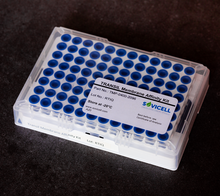The TRANSIL MA kit assesses the affinity of compounds to phosphatidylcholine membranes. Movement through membranes is known as drug transport either as passive diffusion or active transport. Understanding how drugs interact with biological membranes is a prerequisite to an appreciation of their pharmacokinetics and pharmacodynamics.
While a drug’s size, it’s lipophilicity influences and charge influences its ability to passively diffuse through membranes, diffusion is also influenced by the drug’s structure and in particular its structure-structure interactions with the membrane.
Moreover, increasing a drug’s lipophilicity is not necessarily increasing its propensity to traverse through cell membranes. In fact, the higher a drug’s affinity to the membranes, the more likely it is to enter the membrane and not come out again. That means that drug can get effectively trapped in the membranes – a phenomenon well known as brain tissue binding or microsomal binding. This also has toxicological consequences as the compound accumulates the bodies tissues.
The TRANSIL Membrane Affinity kit is a general purpose test kit that assesses how compounds interact with phosphatidylcholine membranes. The 500 µl assay volume allows broad ranges of applications from drug discovery to environmental toxicology.
The kit consists of ready-to-use 96 well microtiter plates. One plate can be used for measuring HSA binding of up to 12 compounds. The assay requires only 5 steps: (i) addition of drug candidate, (ii) mixing and incubation for 12 minutes, (iii) removal of beads by centrifugation, (iv) sampling of supernatant, and (v) quantification of drug candidate.









